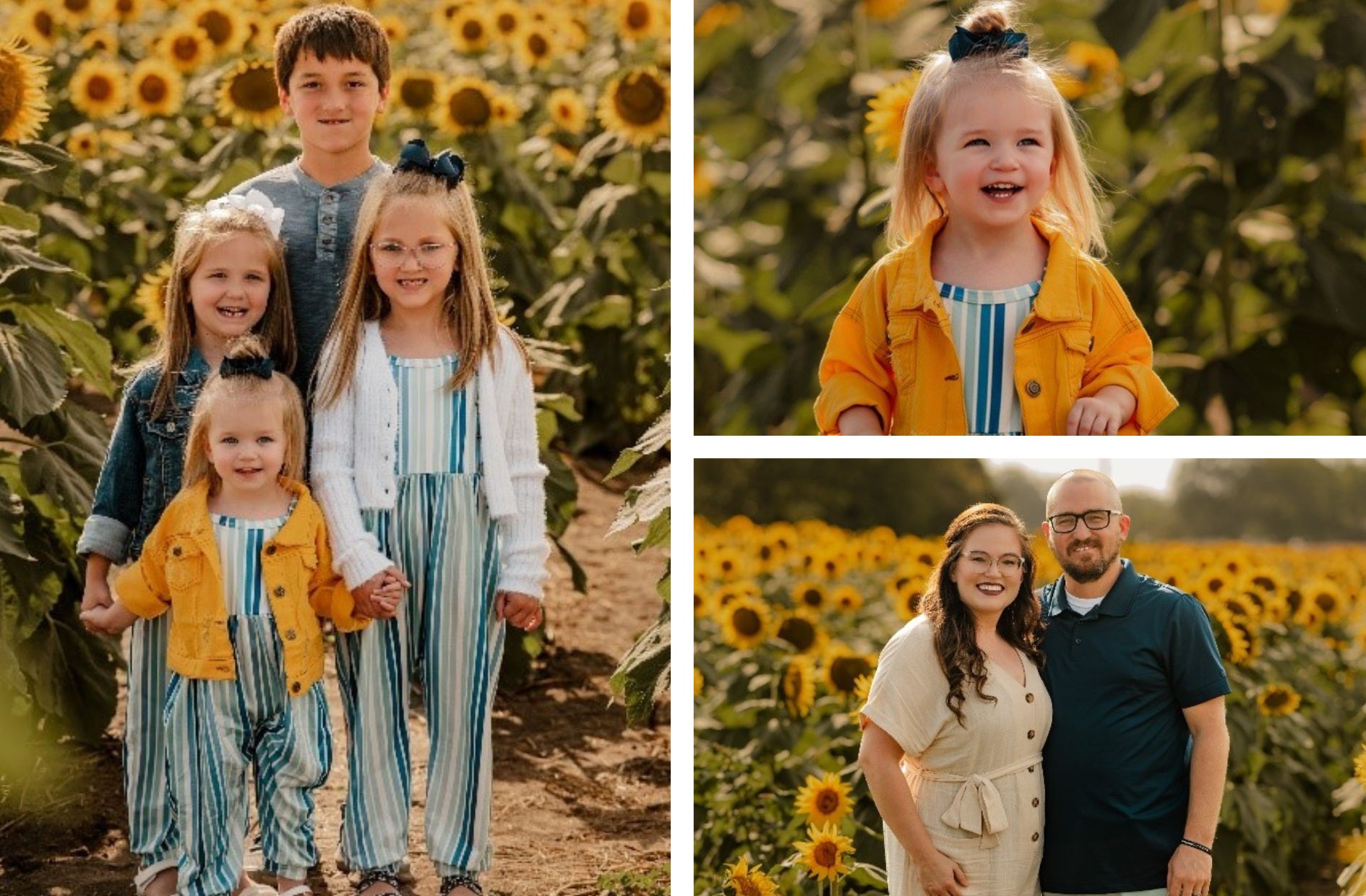When Christen Schuler was expecting her fourth child in 2020, she would never have imagined the stress of a pandemic would take a back seat to a roller-coaster pregnancy.
“Very late in the first trimester, I had my first appointment with a sonogram,” said Schuler, health data analyst at Blue Cross and Blue Shield of Nebraska (BCBSNE). “During that appointment, they found a very, very large cystic hygroma. Something like that is typically caused by the baby’s lymphatic system not working correctly, so all the toxins collect in one spot.”
From there, the months of testing began to determine if the cystic hygroma, a birth defect that occurs as a fluid-filled structure typically on the back of the head and neck, had caused genetic issues, heart issues or other complications during the pregnancy. The doctors advised Schuler that she should expect to lose her pregnancy at any time, and if her daughter was born, the odds of her being healthy were slim.
“Kelsyn did it, though,” said Schuler. “She survived, and she was strong and healthy. She was born four weeks early but didn’t spend a single minute in the neonatal intensive care unit. She seemed to be just fine.”
At Kelsyn’s one-year appointment, Schuler noticed she had a pigeon toe but tucked it away in her brain as a single symptom; however, as she began to study her daughter closer over the next few months, she noticed her crawl was unusual, and she wouldn’t use her left hand to grab items.
“Then she started complaining of pain in her left hand and foot, so at that point I thought it was time to take her in,” said Schuler. “She went through testing, and they confirmed she had an old brain bleed at the base of her brain, which was causing cerebral palsy.”
Cerebral palsy is a group of conditions that impact a person’s movement and posture. Kelsyn’s main symptoms included weakness in her left side, which caused her to keep her leg and arm tighter to her body, and balance and coordination issues.
“It’s really an unseen disability for her because if you aren’t studying her closely, you wouldn’t even be able to tell,” said Schuler. “But it’s still tough because her balance is what impacts her the most. She can’t use the stairs like a typical kid, and she doesn’t like to ride bikes because of the instability.”
Kelsyn began physical therapy to help strengthen her left side, and Schuler learned that playtime needed to become a more intentional, inclusive environment.
“One of her favorite toys was a one-pound weighted Pilates ball. This helped encourage her to use both hands to push, throw or hold it,” said Schuler. “She also ate all her snacks out of a cup with a lid so that she had to hold it with one hand and get the snacks with the other. While those cups are generally used to minimize mess, she used them for another reason that I never would have thought about on my own.”
As her daughter grows, Schuler is prepared to help her be ready for every new opportunity.
“All my other kids are involved with sports, and I am curious as to what that is going to look like for Kelsyn,” said Schuler. “She’s a force to be reckoned with though, so she will find a way to do what she wants.”
Throughout her experience with Kelsyn, Schuler leaned on the support she found at BCBSNE through Possibilities, the company’s employee resource group with a mission to foster an inclusive environment where everyone, no matter their ability, feels comfortable bringing their whole self to work.
“I joined Possibilities as an outlet to talk about what I was going through with Kelsyn and my other kids,” said Schuler. “It is so important to me to have that community because they make me feel seen and heard in those moments when others don’t. It makes me feel connected to others here at BCBSNE, especially as a remote employee.”
Beyond her daughter’s journey, Schuler has also found comfort in a work environment where she can show up as her whole self.
“I’ve been at other companies where being human and having bad moments was seen as a weakness,” she said. “At BCBSNE, I feel like being human is my superpower, and to have that support makes you feel better than words can describe.”
For more articles like this one, visit Team Blue.






